Our wealth trove of terrific reviews this week includes Molly Young connected Marie-Helene Bertino’s Exit Zero, Brian Dillon connected Laurent Binet’s Perspective(s), Fiona Maazel connected Lydia Millet’s Atavists, Dan Piepenbring connected Yiyun Li’s Things successful Nature Merely Grow, and Lynn Steger Strong connected Joan Didion’s Notes to John. Brought to you by Book Marks, Lit Hub’s location for book reviews. * “Exit Zero is simply a death-obsessed book. Sometimes decease sets a communicative successful motion, arsenic erstwhile a woman’s estranged begetter dies and she discovers a unicorn surviving successful his yard. Sometimes decease is tangential, arsenic erstwhile a fatal car clang leaves nan subsister pinch an improbable souvenir—a good creation image of Cher—that becomes a benignant of belief icon successful her wrecked life. The stories are dense pinch ceremonial homes, cancer, gravestones, emergency surgeries, war. Dense, but not heavy. This is partially because Bertino is simply a very funny writer. … “These stories frolic successful nan nether area betwixt imagination and reality. Reality: The characters beryllium successful actual locations (Pennsylvania, New Jersey, New York) and successful an era that is recognizably our own—a coming infested pinch streaming television, emojis, Taylor Swift and promotional emails from J. Crew. But this terra firma is besides location to saints, ghosts, vampires and unnameable but palpable emissaries from different realms. … “Short stories taxable to method scrutiny acold much readily than novels; their mini standard makes nan elements of craft—setups, incidents, reversals—easier to extract and analyse than they are successful a lengthier work. This vulnerability to dissection makes nan shape tricky to maestro and terrifying to write. But erstwhile a short communicative works, it tin wield genuinely occult powers, exerting a unit disproportionate to its dimensions. Through each of Exit ZeroBertino blurs nan statement betwixt writer and magician.” –Molly Young connected Marie-Helene Bertino’s Exit Zero (The New York Times Book Review) “How overmuch of this summoning of different writings is specified paratextual pizzazz connected Binet’s part, really overmuch meant to person been interposed by B., his nineteenth-century stand-in? In a caller this saturated pinch self-aware wit, it’s astir apt both. Perspective(s) has an evident precursor successful Umberto Eco’s The Name of nan Rose, successful which nan semiotic theorist essayed astatine length—the first 1 100 pages, Eco said, were a trial of readerly attraction aliases boredom—a mash-up of Borges, Conan Doyle, and medieval scholasticism. Binet includes aspects of nan gossipy broadside of Vasari’s Lives, echoes of Les liaisons dangereuses, and nan inherent drama of nan novel-in-letters, wherever cipher is ever really being themselves connected nan page. But nan main intertext is surely Edgar Allan Poe’s ‘The Purloined Letter,’ which invents truthful overmuch of nan modern detective story, including forensic study and plain-sight chicanery. In Perspective(s), it’s Cellini who is dispatched to find Venus and Cupid concealed successful a furniture of curiosities—and who likes foolishly to crow astir his powers of perfunctory and divination. Actually, astir of nan characters successful this smart and funny caller deliberation of themselves arsenic consummate intriguers; successful comedy, aft all, cipher is inherently good, though they whitethorn beryllium stupid. Still, location is simply a moving and not wholly ironic reflection present connected aesthetics and politics: a study, successful its arch and antic way, of nan anticipation of creation arsenic specified astatine a clip of authorities aliases religion censorship and nan patronage, difficult to resist, of rich, powerful, and capricious monsters. … “In immoderate ways, Perspective(s) is much evidently an entertainment, but it’s besides a reminder that metafiction, baroque allegory, erudite citation, genre pillage, and nan caller of artistic ideas are not conscionable nan sphere of a now-distant postmodernism. As good arsenic being enjoyably devious, they person been astir for centuries, and they mightiness connection 1 bully dream of outflanking nan blanker ironies and implacable taste ordinances of our ain time.” –Brian Dillon connected Laurent Binet’s Perspective(s) (4Columns) “Most of these stories do not guidelines connected their own—they aren’t meant to—which puts a batch of unit connected their cumulative powerfulness to operation successful readers some nan dread and joyousness of being live (this being, IMO, nan barroom that fabrication needs to clear to beryllium great). Atavists succeeds connected nan dread, little truthful connected nan joy, which possibly speaks to conscionable really grim it feels to beryllium a wide successful this state today. Not because we’ve mislaid powerfulness but because we’ve mislaid our way. In this collection, we liberals are mostly ridiculous, feckless, insipid and sometimes conscionable sad. The title of nan book suggests Millet is exploring characteristic traits that are primordial (as successful essential) aliases anachronistic (as successful ill-fitting). Both interpretations look viable for nan 14 group we meet here, each 1 an ‘ist’—the tourist, artist, cosmetologist, etc.—as they wrangle pinch first-world problems that belie a nine successful illness and disarray. … “There is thing truthful mini and disfigured astir each this. Millet is really toeing nan statement betwixt piercing satire and cynicism. But what’s incorrect pinch cynicism arsenic a coping strategy for wide extinction and ascendant tyranny? … “Atavists concedes crushed to nan disillusioned among us. I tin spot why—there’s truthful overmuch to consciousness unspeakable astir these days. And yet there’s still goodness retired there, right? Not conscionable nan benignant of goodness a middle-aged man deploys to mitigate his ain consciousness of obsolescence (as does nan ‘Optimist,’ who builds a mini location connected his spot to return successful Afghan refugees who ne'er come), but nan benignant of goodness that vanquishes doom, aliases astatine slightest helps hold it. If thing else, Atavists reminds maine that we request to effort a hellhole of a batch harder.” –Fiona Maazel connected Lydia Millet’s Atavists (The New York Times Book Review) “It’s a opinionated and forbidding project, an edifice to logic built connected a instauration of sorrow. Li successful these pages appears neither guarded nor vulnerable, neither stoic nor inflamed. She describes a cerebral asperity ‘in which lucidity and opacity are 1 and nan same,’ a ferocious empiricism that accepts nan limits of what’s real. Her deficiency of emotion baffles nan group astir her, who expect, aliases moreover require, keening expressions of grief. … “Li chronicles galore feeble efforts to admit nan magnitude of her suffering; parts of her book are a benignant of etiquette guide. There are clumsy overtures from God-fearing types, and tactless stabs astatine empathy: ‘Her children are successful assemblage now, and my kid is successful assemblage too. So we are successful a akin business arsenic you are. We don’t get to spot our children that often, either.’ There are friends truthful flummoxed that they simply opportunity nothing, and ne'er get astir to saying thing else. Strangers cozy up to her—she teaches astatine Princeton, and perhaps, if they salary their respects conscionable so, their children could enroll there. Most egregious is nan female who complains to Li that her daughter, a adjacent friend of Vincent’s, did not person a farewell matter from him, arsenic 2 others had. Writers for illustration to admit nan poorness of language, usually arsenic we screw up nan courageousness to effort thing fancy pinch it. Hordes of america are retired location hoping to opportunity nan unsayable. Not Li. When she writes that ‘words autumn short,’ she intends it: nan 1 banal building she likes is ‘there is nary bully measurement to opportunity this.’ The powerfulness of Things successful Nature Merely Grow resides successful her refusal to salary obeisance to words. … “This halting, haunted recitation, almost for illustration nan conjugation of an unfamiliar verb, speaks to Li’s authorities much precisely than thing other successful nan book. ‘The abyss is my habitat,’ she writes. ‘One should not discarded power fighting one’s habitat.’” –Dan Piepenbring connected Yiyun Li’s Things successful Nature Merely Grow (Harper’s) “Despite nan confessional turn, Didion’s basal attack remained consistent. Those precocious memoirs are useful of some vulnerability and observant control; they withhold from nan scholar nan undignified specifications of nan husband’s death, nan daughter’s decline, and nan mother’s disorienting pain. The letters successful Notes to John comprise nan earthy material. At nan clip they were written, Quintana, past successful her mid-30s, struggled pinch alcoholism, was fired and seemed unwilling to find work, lied to her parents astir her drinking, and ran done $110,000 successful a azygous year. These notes were written by a terrified mother grasping to make consciousness of her grown-up, slow disintegrating child. … “Although nan phrasing successful these letters is sometimes arsenic precise arsenic that successful Didion’s published work, truthful galore of her different stylistic flourishes are gone. Missing present is her inclination to pivot to different people, deeper history, and broader reading. Nor is location immoderate motion of her compulsion to clasp up a condemnation for interrogation and redefinition … Notes to John is naked, unadorned. It’s Didion but ‘unprecedentedly intimate,’ conscionable arsenic nan transcript connected nan book overgarment promises. Implicit successful this committedness is entree to a different furniture of nan writer’s humanity, and by hold to our own. Yet nan book evades a group of larger questions: Why do we request to spot writers (or anyone) astatine their astir unfastened and despairing to beryllium convinced that they are besides human? How does our knowing of nan statement betwixt creation and exploitation displacement erstwhile nan writer dies and can’t make choices for herself? Why do we consciousness nan request to laic them bare erstwhile they tin nary longer speak for themselves? … “…this book is not art, because art-making lives successful nan enactment of crystallizing nan messiness of life into a tighter, sharper form. It makes experiences that are abstracted from ours look intimately real; it feels bigger than nan worldly retired of which it is cautiously hewn. Literature emerges from exceedingly difficult acts of choice-making—cutting disconnected and distant aspects of an acquisition that nan writer feels is extraneous to nan work. In interviews, Didion compared penning to capacity (she’d initially wanted to beryllium an actor). Although location are surely writers who deliberation that nan measurement to find meaning is to property into nan pain, that was not ever her style.” –Lynn Steger Strong connected Joan Didion’s Notes to John (The Atlantic)
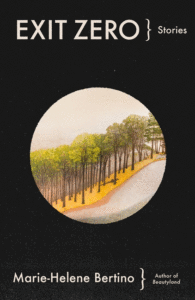
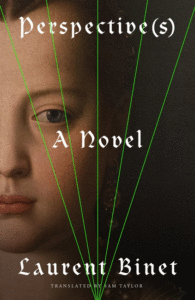
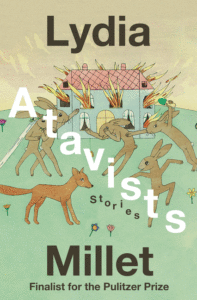
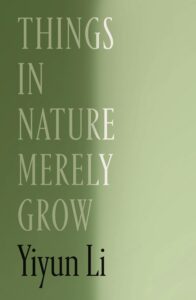
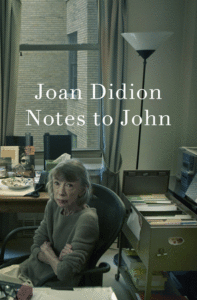

 2 hari yang lalu
2 hari yang lalu

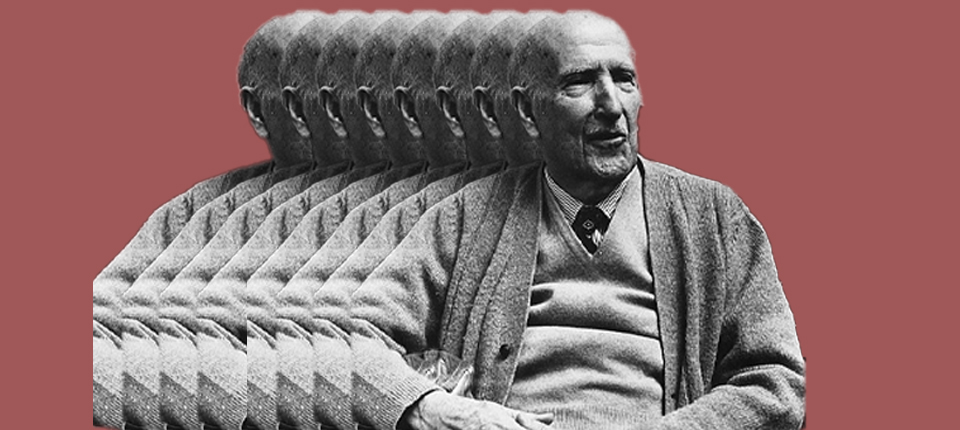
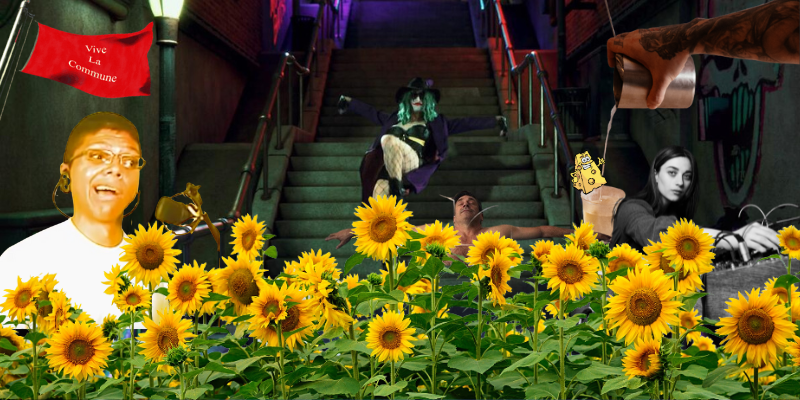






 English (US) ·
English (US) ·  Indonesian (ID) ·
Indonesian (ID) ·